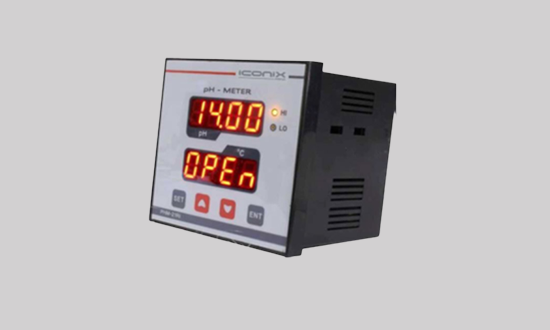What Is PH Meters?

pH is a measure of the concentration of hydrogen ions (H+) in a solution, which indicates whether a substance is acidic, neutral, or alkaline (basic). The pH scale ranges from 0 to 14, with 7 being considered neutral. Solutions with a pH below 7 are acidic, while those with a pH above 7 are alkaline. The pH scale is logarithmic, meaning that each whole pH value represents a tenfold difference in acidity or alkalinity.
How do pH Meters Work?
pH meters consist of a probe or electrode, a voltmeter, and a reference electrode. The most commonly used probe is the glass electrode. Inside the glass electrode, there is a special gel filled with a solution of known pH, and it is in contact with the sample being tested. The reference electrode completes the electrical circuit.
When the probe is immersed in a solution, a potential difference is generated between the glass electrode and the reference electrode. This potential difference is directly related to the hydrogen ion concentration in the sample. The voltmeter measures this potential difference and converts it into a pH reading, which is displayed on the meter's screen.
Calibration and Maintenance:
To ensure accurate readings, pH meters need regular calibration. Calibration involves adjusting the meter to recognize the known pH values of standard solutions. Typically, two standard solutions with known pH values (one acidic and one alkaline) are used for calibration. By adjusting the meter's settings based on the readings obtained from these standard solutions, the pH meter is calibrated and ready for use.
In addition to calibration, proper maintenance is crucial to keep pH meters in optimal working condition. The electrodes need to be cleaned after each use and stored in a storage solution or buffer solution to prevent drying out. Regular electrode replacement is also necessary, as the performance of the electrode can deteriorate over time.
Applications of pH Meters:
pH meters have a wide range of applications across various fields. Here are a few examples:
Water Quality Analysis: pH meters are commonly used to monitor the pH of water in swimming pools, aquariums, and drinking water systems. Maintaining the correct pH levels ensures optimal water quality and prevents the growth of harmful bacteria or algae.
Soil Testing: pH meters are invaluable tools for gardeners and farmers to determine the acidity or alkalinity of soil. Different plants thrive in different pH ranges, and testing the soil helps determine the need for soil amendments to create an optimal growing environment.
Industrial Processes: pH control is critical in many industrial processes, such as chemical manufacturing, food and beverage production, and pharmaceuticals. pH meters allow precise monitoring and adjustment of pH levels to ensure product quality and process efficiency.
Conclusion: pH meters are essential instruments for measuring the acidity or alkalinity of solutions. With their ability to provide accurate and reliable pH readings, they play a crucial role in various scientific, environmental, and industrial applications. Understanding how pH meters work, their calibration, and proper maintenance is vital for obtaining precise measurements. So whether you're maintaining a swimming pool, analyzing soil conditions, or involved in scientific research, pH meters are invaluable tools that help us understand and control the delicate balance of acidity and alkalinity in our world. For more information on pH meters .Also, we provide installation and commissioning services for the same. Write us at reach us at sales@saitechflowinstro.com



